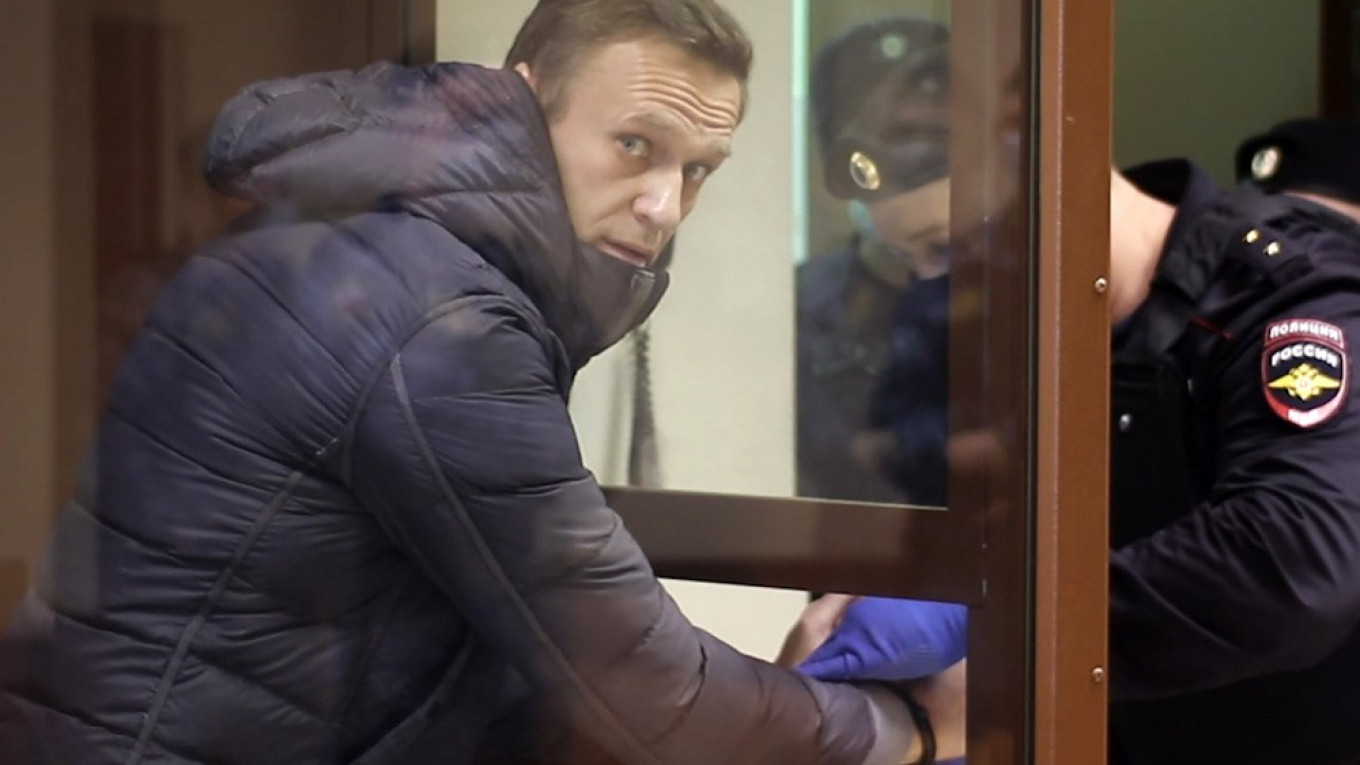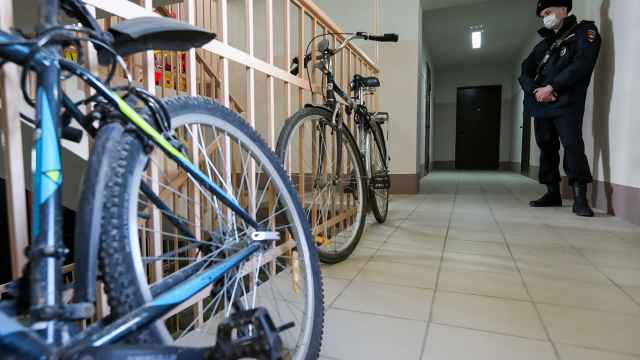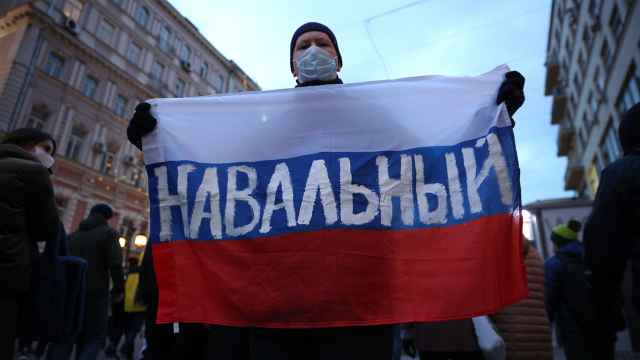Russian prison authorities said Monday they have transferred hunger-striking Kremlin critic Alexei Navalny to a medical ward at a different prison for “vitamin therapy” as supporters warn that his life is hanging by a thread.
Navalny’s doctors warned that Russia’s most prominent opposition figure risks cardiac arrest at “any minute,” saying his health has rapidly deteriorated since he went on hunger strike on March 31 to demand outside medical assistance. The opposition politician has alleged in recent days that prison authorities have threatened to force-feed him.
“A doctors’ commission has decided to move A. Navalny to the regional hospital for convicts,” the Vladimir region prison service that oversees Navalny's prison colony announced in a statement.
The hospital, located at a different prison colony in the region, specializes in monitoring patients who have health problems, the prison service said.
“Navalny’s health condition is assessed as satisfactory and he is examined daily by a general practitioner,” it added. “The patient has been prescribed vitamin therapy with his consent.”
Ivan Zhdanov, who heads Navalny's Anti-Corruption Foundation, said the prison service's description of Navalny's “satisfactory” condition is meant to dissuade people from attending Wednesday's nationwide protests in his support.
“This just means Navalny's condition has gotten so bad, that even a torture farm acknowledges it,” he tweeted. “It is absolutely clear that we will now be given something like 'good news' about Alexei's condition before the rally. Don't get fooled. We can only get truthful information from his lawyers.”
Navalny's team has called for massive protests across Russia on Wednesday evening, just hours after President Vladimir Putin is set to deliver his state-of-the-nation address, in a bid to save his life.
His doctors said Sunday that they had once again been denied entry to the penal colony where he is serving two and a half years on charges of violating parole under an old fraud conviction.
On Friday, Russian prosecutors asked a court to label Navalny's Anti-Corruption Foundation and the network of his regional offices "extremist" organizations, in a move that would outlaw them in Russia and could result in jail time for their members or even supporters.
World leaders and prominent cultural figures have come out in Navalny’s support, with U.S. President Joe Biden calling Navalny’s plight “totally unfair” and his national security adviser warning of “consequences” for Russia if Navalny dies.
Meanwhile, Russia’s ambassador in London, Andrei Kelin, said Navalny "will not be allowed to die in prison."
AFP contributed reporting.
A Message from The Moscow Times:
Dear readers,
We are facing unprecedented challenges. Russia's Prosecutor General's Office has designated The Moscow Times as an "undesirable" organization, criminalizing our work and putting our staff at risk of prosecution. This follows our earlier unjust labeling as a "foreign agent."
These actions are direct attempts to silence independent journalism in Russia. The authorities claim our work "discredits the decisions of the Russian leadership." We see things differently: we strive to provide accurate, unbiased reporting on Russia.
We, the journalists of The Moscow Times, refuse to be silenced. But to continue our work, we need your help.
Your support, no matter how small, makes a world of difference. If you can, please support us monthly starting from just $2. It's quick to set up, and every contribution makes a significant impact.
By supporting The Moscow Times, you're defending open, independent journalism in the face of repression. Thank you for standing with us.
Remind me later.






